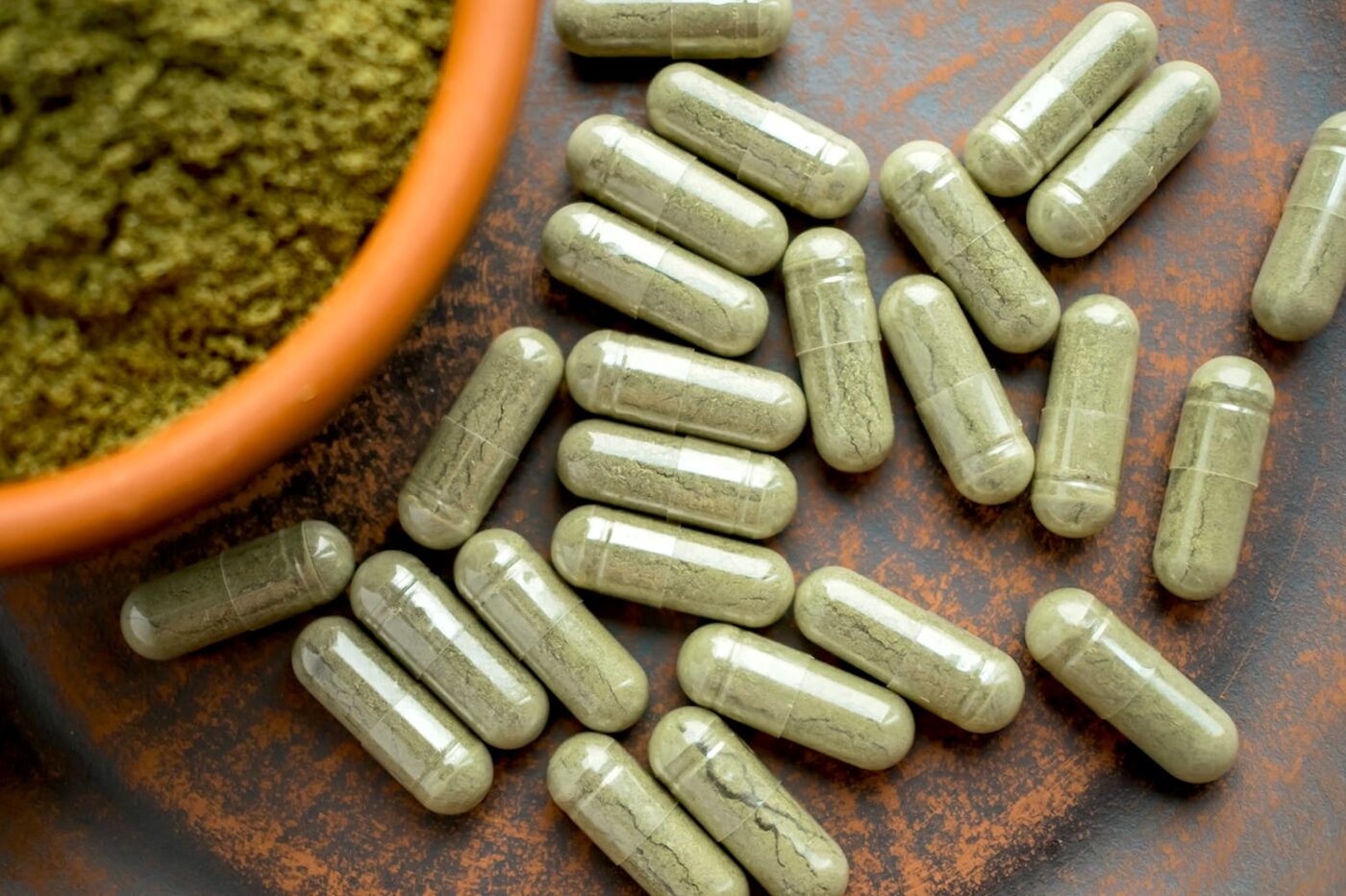The topic of pre-workout supplements has long been a controversial one — take the meteoric rise of straight-talking Eddie Abbew or the mass outcry caused by a pro bodybuilder sipping breast milk before his session as prime examples — but never have we encountered a newcomer quite to potentially dangerous as this one.
Brought to our attention by fitness influencer Matt Garbarino, whom we’ve covered previously around the revelatory protein meta-study that came out earlier this year. The trainer discusses the use of kratom as a pre-workout. The substance, banned in many US states and nations worldwide, gets a ringing endorsement from Garbarino. Here’s what he had to say:
What Is Kratom
A tropical tree native to Southeast Asia and a relative of the coffee tree, Kratom has made waves in the US in recent years off the back of some interesting legal loopholes supported by swathes of advertising, especially in and around the podcast space.
Often prescribed to ease opioid withdrawals, its leaves are crushed, smoked, and then brewed as a tea or placed in gel capsules, causing stimulant effects in low doses and sedative effects in high doses.
The DEA describes its effects as follows:
“At low doses, kratom produces stimulant effects with users reporting increased alertness, physical energy, and talkativeness. At high doses, users experience sedative effects. … Several cases of psychosis resulting from use of kratom have been reported.”
DEA
Why Are People Using Kratom For Exercise
The reported benefits of using Kratom as a pre-workout can generally be summarised under the three following points. For a more in-depth report from someone who has tried it, we recommend DownBeach or HellGate NYC’s write-ups…
- Increased energy and stamina: Kratom is reported to boost energy levels, giving users the endurance needed to power through workouts. Its stimulant properties enhance alertness and combat fatigue, leading to more productive sessions.
- Improved focus and concentration: Users claim that kratom enhances mental clarity, aiding in maintaining proper form, executing exercises with precision, and staying engaged during workouts. This heightened mental state may generate a more effective and enjoyable exercise experience.
- Pain relief and faster recovery: Kratom is praised for its analgesic properties, which may alleviate pain after strenuous workouts, enabling people to push their limits without being hindered by muscle soreness or joint pain. This could aid in faster recovery and encourage consistent exercise routines.

Is Kratom Dangerous?
In short: yes, it can be. Described as “dangerously addictive” by Dr Michael Milham from the Child Mind Institute while the DEA notes that use “can lead to psychotic symptoms, psychological and physiological dependence”, and also points to “several cases of psychosis resulting from use of kratom”.
David Seitz, MD — medical director of Ascendant, a New York-based rehab program — seems to agree, noting a rise in addiction among his patients:
“I think the major challenge is a perceptual one… people using think it’s harmless because it’s touted as natural, they don’t consider it a drug until they get into trouble with it.”
David Seitz
One father tells a tale of his son using kratom in boarding school. He began using it regularly for social anxiety, but then got addicted:
“We noticed that he seemed angrier and had an explosive temper… He realized he had a problem and stopped, but had some relapses before stopping completely. It was a scary thing.”
Anonymous Father
We’re all for experimental ways to boost your gym performance here at DMARGE, but could Kratom be a bridge too far? Let us know what you think.
